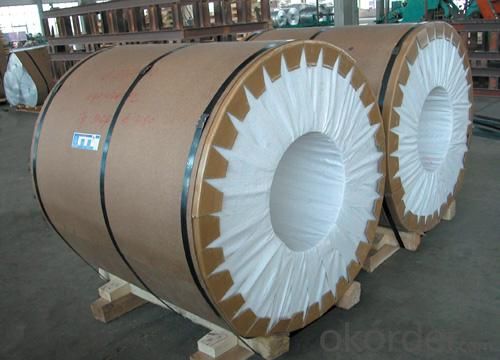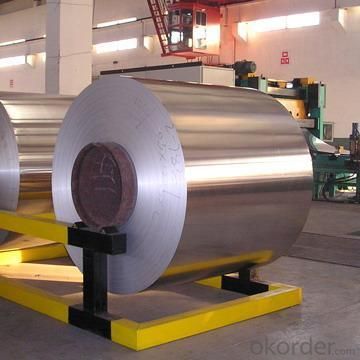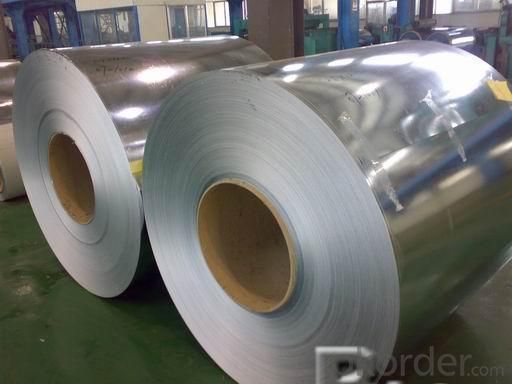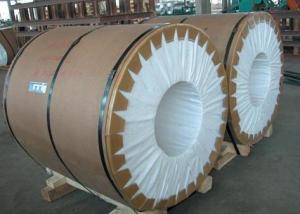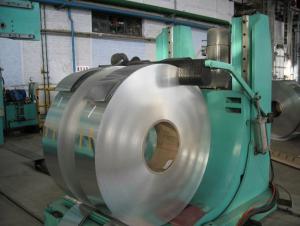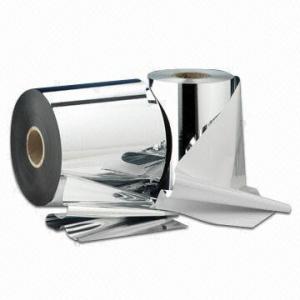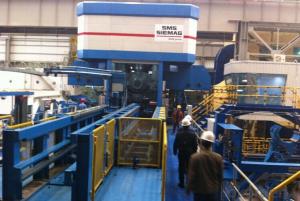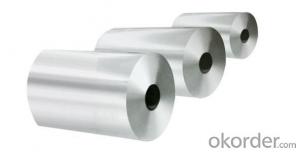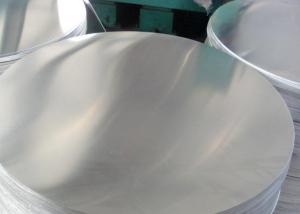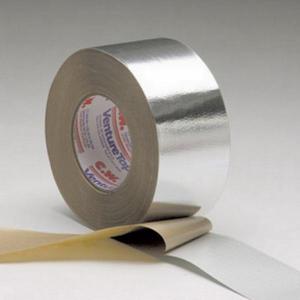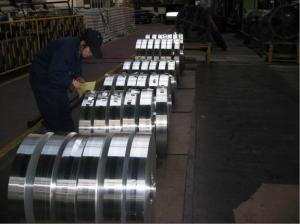Aluminum Aluminum Foil Stock
- Loading Port:
- China Main Port
- Payment Terms:
- TT or L/C
- Min Order Qty:
- 5 MT m.t.
- Supply Capability:
- 7000MT/MONTH m.t./month
OKorder Service Pledge
OKorder Financial Service
You Might Also Like
Quick details of Aluminum Foil Stock
Alloy: 1235/8011/8079
Temper: H14/H16/H24/H26
Specifications of Aluminum Foil Stock
Thickness & Tolerance: 0.28~0.3mm (±0.01mm)
Width & Tolerance: 1000-2020mm (±1mm)
Standard: GB/T3198 / ASTM-B209 / EN546
Usage/Application of Aluminum Foil Stock
For for aluminum Foil
Packaging & Delivery of Aluminum Foil Stock
Packing: seaworthy wooden box with pallet
Delivery: to be loaded by 1 x 20 feet container
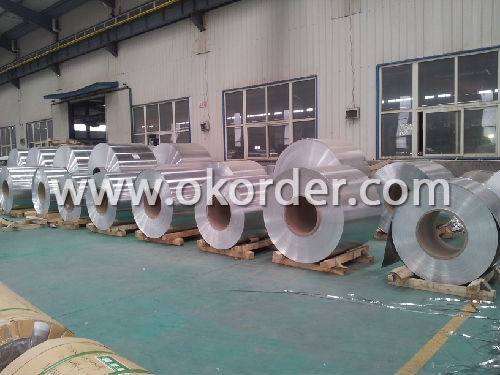
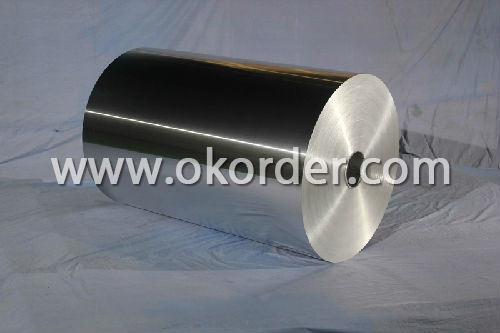
- Q: This question asks about the impact of aluminum usage on the global economy, including its role in various industries and its influence on trade and economic development.
- <p>The use of aluminum significantly affects the global economy due to its versatility and widespread application in numerous industries such as construction, automotive, aerospace, and packaging. As the third most abundant element in the Earth's crust, aluminum is a key material in modern manufacturing, contributing to economic growth through job creation and technological advancement. It also plays a crucial role in trade, with major producers like China, Russia, and Canada exporting large quantities, influencing global supply chains and trade balances. Additionally, the demand for aluminum drives exploration and investment in mining, further impacting economic development in resource-rich regions. However, the environmental and sustainability concerns associated with aluminum production, such as energy consumption and waste, also present challenges that can affect economic stability and growth.</p>
- Q: Is it possible to utilize aluminum as a component in battery technology?
- <p>Yes, aluminum can be used in batteries. Aluminum-air batteries are a type of metal-air battery that uses aluminum as the anode. These batteries have a high energy density and are lightweight, making them suitable for certain applications. However, they also have challenges such as the need for a specific electrolyte and issues with aluminum corrosion, which limit their practical use compared to more common battery technologies like lithium-ion batteries.</p>
- Q: What are the pros and cons of utilizing aluminum foil in everyday life?
- <p>Aluminum foil has several advantages, including its affordability, heat conductivity, and ease of use. It's commonly used for food storage, cooking, and insulation. However, it also has disadvantages such as being a single-use item contributing to waste, potential health risks when used with acidic or salty foods, and the environmental impact of its production and disposal. It's lightweight and can be easily torn, which might lead to improper sealing or covering.</p>
- Q: This question asks about the impact of weathering on aluminum surfaces, including potential changes and effects.
- <p>The weathering process can significantly affect aluminum surfaces. Aluminum naturally forms a protective oxide layer when exposed to air, which provides corrosion resistance. However, over time, weathering can lead to the thinning or damage of this oxide layer, especially in harsh environments. This can result in corrosion, pitting, or discoloration. Additionally, weathering can cause physical changes such as surface roughening due to the differential erosion of the aluminum and its protective layer. In coastal areas, the presence of salt can accelerate these effects. Proper maintenance, such as regular cleaning and protective coatings, can help mitigate the effects of weathering on aluminum surfaces.</p>
- Q: Is it possible to utilize aluminum in the manufacturing process of solar panels?
- <p>Yes, aluminum is indeed used in the production of solar panels. It is primarily employed as a component of the frame that supports and protects the panel. Aluminum's light weight, high strength, and corrosion resistance make it an ideal material for this purpose. Additionally, aluminum can be used in the backsheet of the solar panel, providing structural support and helping to protect the panel from environmental factors. However, aluminum is not used in the actual photovoltaic cells that convert sunlight into electricity; those are typically made from silicon.</p>
- Q: Explain the differences between aluminum and other metals concerning their ability to degrade or break down in the environment.
- <p>Aluminum is not biodegradable in the traditional sense, meaning it does not break down into simpler substances through natural processes. It is highly resistant to corrosion and can persist in the environment for a long time. Unlike metals like iron, which rust and degrade over time, aluminum remains largely intact. However, aluminum can react with other elements in the environment, such as oxygen, to form a thin layer of aluminum oxide on its surface, which can alter its properties. Other metals like magnesium and zinc are more biodegradable as they can corrode and break down more readily in certain conditions, contributing to their use in biodegradable materials.</p>
- Q: Explain how the use of aluminum impacts energy consumption, including its production and recycling processes.
- <p>The use of aluminum has a significant impact on energy consumption, particularly in its production process. Aluminum is an energy-intensive material to produce, requiring large amounts of electricity to extract from its ore, bauxite, through a process called electrolysis. This process accounts for about 5% of global electricity consumption. However, aluminum is also highly recyclable, and recycling aluminum uses only 5% of the energy needed to produce it from raw materials. This makes aluminum recycling a more energy-efficient process, reducing the overall energy consumption related to aluminum use when recycling is prevalent.</p>
- Q: What are the typical applications for aluminum sheet metal?
- <p>Aluminum sheets are versatile and have numerous applications due to their lightweight, corrosion resistance, and strength. Some common uses include construction for roofing and siding, automotive parts such as body panels and heat sinks, packaging for food and beverages, aerospace for aircraft components, and in the manufacturing of electronic devices due to its good thermal conductivity. They are also used in signage, furniture, and various decorative applications.</p>
- Q: This question asks about the typical applications of aluminum pipes in various industries and settings.
- <p>Aluminum pipes are commonly used in a variety of applications due to their lightweight, corrosion resistance, and high thermal conductivity. They are extensively used in the automotive industry for parts like radiators and heat exchangers. In construction, aluminum pipes are utilized for heating, ventilation, and air conditioning (HVAC) systems. They are also used in the beverage industry for conveying and cooling liquids, as well as in the aerospace industry for fuel and hydraulic lines due to their strength-to-weight ratio. Additionally, aluminum pipes are found in industrial settings for compressed air and gas lines, and in marine applications for fuel and water systems.</p>
- Q: This question asks about the steps involved in preparing aluminum foil for use in food packaging.
- <p>Aluminum foil for food packaging is processed through several steps. First, aluminum ingots are melted and then rolled into thin sheets. The sheets are cleaned to remove any impurities and coated with a thin layer of food-grade protective coating to prevent any chemical reactions with the food. Next, the sheets are cut into rolls or sheets of standard sizes. The aluminum foil is then inspected for quality, ensuring it is free from defects and safe for food contact. Finally, it is packaged and shipped to manufacturers who use it to wrap or package food products.</p>
1. Manufacturer Overview
| Location | Shandong, China |
| Year Established | 2000 |
| Annual Output Value | Above US$ 500 Million |
| Main Markets | Mid East; North America; Eur |
| Company Certifications | ISO 14001:2004; FDA |
2. Manufacturer Certificates
| a) Certification Name | |
| Range | |
| Reference | |
| Validity Period |
3. Manufacturer Capability
| a) Trade Capacity | |
| Nearest Port | Qingdao |
| Export Percentage | 41% - 50% |
| No.of Employees in Trade Department | 30-40 People |
| Language Spoken: | English; Chinese |
| b) Factory Information | |
| Factory Size: | Above 100,000 square meters |
| No. of Production Lines | 3 |
| Contract Manufacturing | Design Service Offered |
| Product Price Range | Average |
Send your message to us
Aluminum Aluminum Foil Stock
- Loading Port:
- China Main Port
- Payment Terms:
- TT or L/C
- Min Order Qty:
- 5 MT m.t.
- Supply Capability:
- 7000MT/MONTH m.t./month
OKorder Service Pledge
OKorder Financial Service
Similar products
Hot products
Hot Searches
Related keywords



